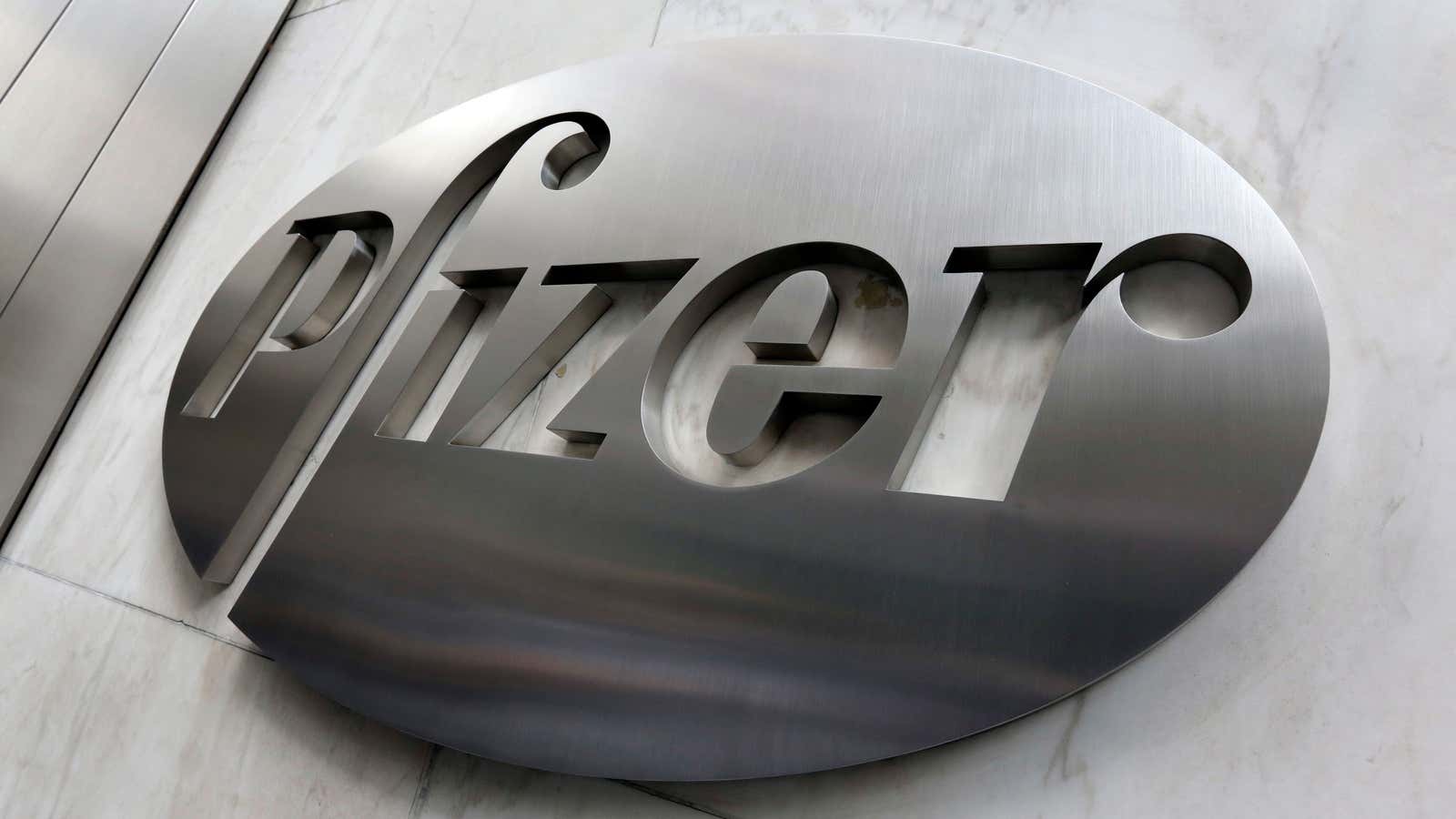Despite being more than 20 years old, the erectile dysfunction drug Viagra still seems to be playing a major role in the stock prices of its parent, Pfizer.
Back in the day, the little blue pill led to skyrocketing share prices. But these days, concern over Viagra’s expiring patent brought stock prices down in the lead-up to Pfizer’s fourth-quarter earnings, which were announced Tuesday (Jan. 29).
Although Pfizer still technically has a patent on sildenafil citrate (the scientific name for Viagra) through April 2020, generic versions of the pill have been popping up left and right. About a decade after the pill’s launch, Teva Pharmaceuticals and Mylan NV tried to put generic versions of the pill on the market. Pfizer sued for patent infringement, and reached a settlement with both companies. According to the terms of the settlement, both companies were allowed to start selling generics in December 2017—at which point Pfizer also started selling its own Viagra generic. The same litigation allowed wellness startups for men, like Roman and Hims, to start selling generic versions of Viagra, too.
All the Viagra competition—plus high foreign exchange rates and an expiring patent on Lyrica, a drug that treats both pain and seizure—gave investors reason to believe that Pfizer didn’t bring in much revenue in 2018. As a result, stock prices have been falling since late last year, and continued to do so in the first month of 2019. In anticipation of Pfizer’s fourth-quarter earnings report, stock prices fell from around $44 at the start of 2019 to just under $40 per share on Jan. 29.
In an earnings call on Jan. 29, Pfizer reported that it did marginally better than analysts had predicted. Total revenue was around $13.89 billion compared to an estimated $13.7 billion, which inspired stock prices to bounce back a little, but not enough to make up for their 2019 losses. The company also projected that it’d see less growth in the near future as it invests in research and development for drugs still in the pipeline, while drugs like Viagra and Lyrica retire.
